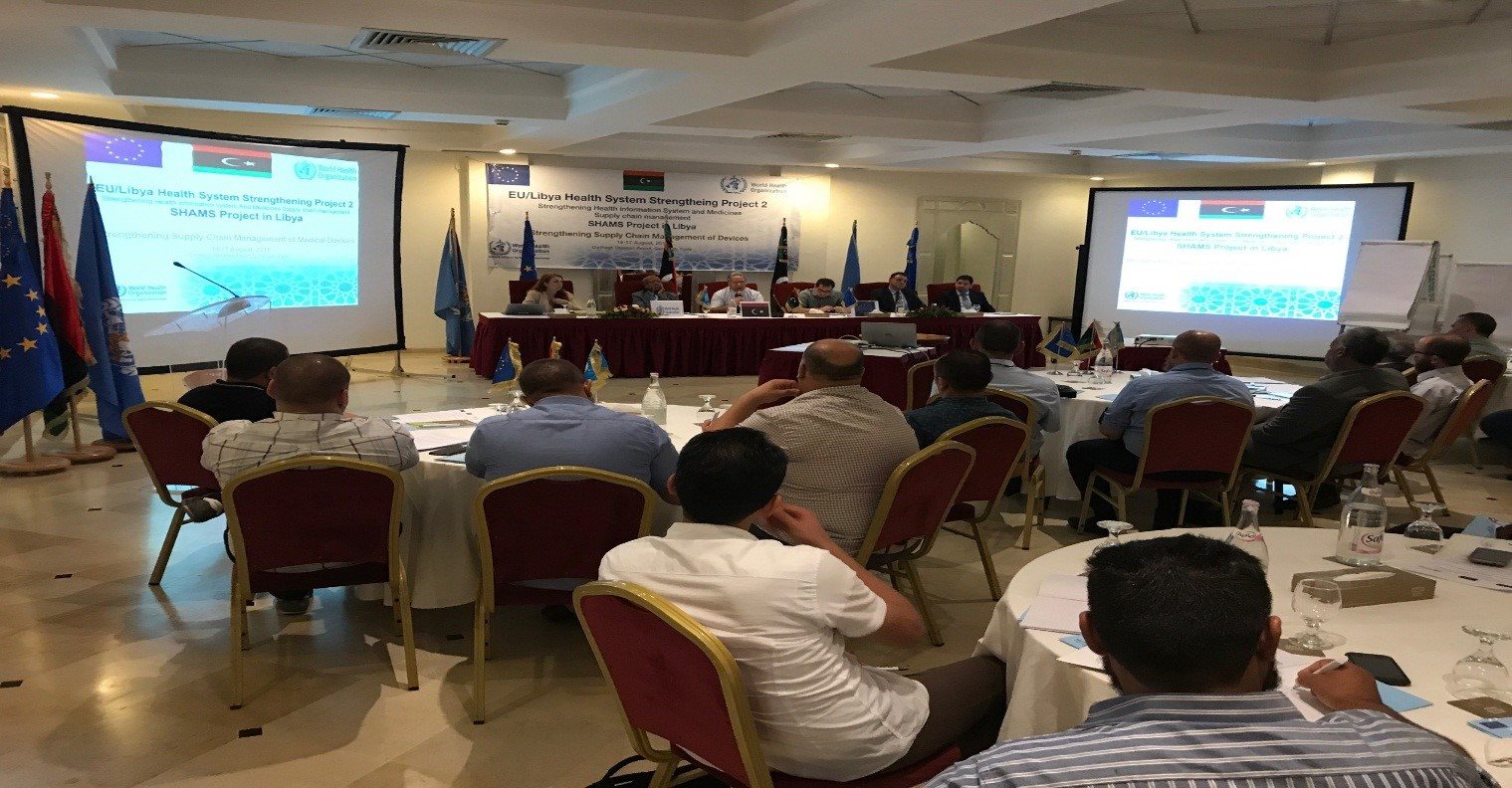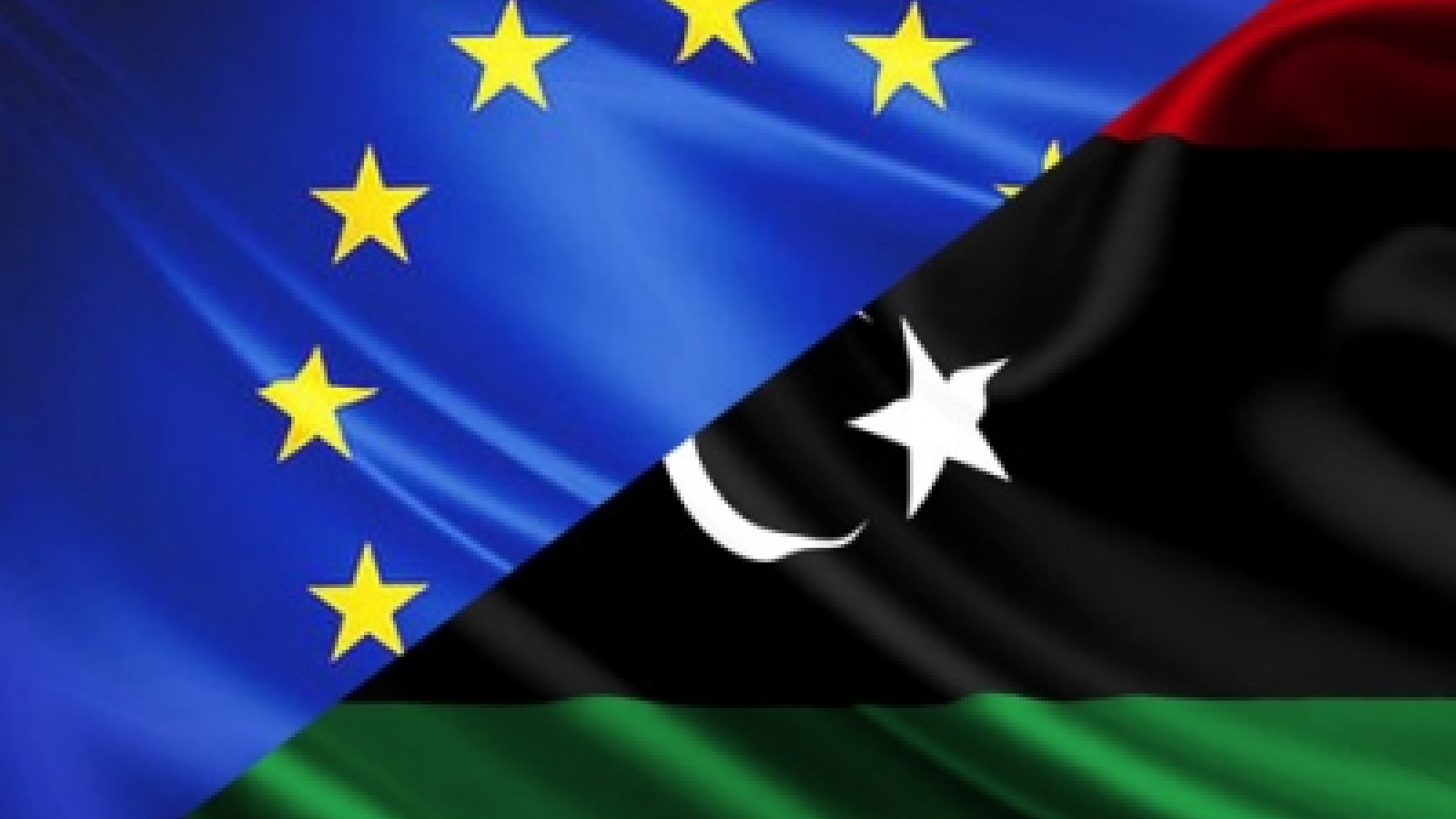Libya: project holds workshop on strengthening medical supply chains

The World Health Organisation (WHO) and the Libyan Ministry of Health have held a week-long workshop on capacity building and strengthening of the management of the supply chain of medical devices in Libya, as part of a project funded by the European Union and supporting supply chain management and health information management.
The objective of the workshop was to strengthen technical skills for the planning and management of the supply chain of medical devices. This will help to make health services in Libya more efficient and able to meet the health needs of citizens. The workshop targeted issues such as reducing shortages or malfunctioning of essential equipment, promoting the responsible use of medicines, especially antibiotics, and facilitating access to essential medicines – all of which will contribute to better disease surveillance.
Supply chains in Libya remain fragmented and incomplete, with weaknesses worsened after the civil unrest and extended conflict in Libya, putting patients at risk.
The EU-funded SHAMS project is designed to address the major challenges facing medical devices and medicines to improve access and quality of health services for the Libyan population. The EU and WHO are working closely with Libyan policy makers and professionals to identify key constraints and devise models to strengthen and improve the health-care supply chain cycle on a sustainable development pathway.
“Improving the health-care supply chain also could give millions of people better access to safer and more affordable health care, reduce costs, and provide new revenue sources for manufacturers,” said Stefano Sotgia, Head of Cooperation at the EU Delegation to Libya.
Read more





































